CCE Programmes
CCE Curriculum
For a holistic character and citizenship education, a school-based curriculum has been specially developed by the teachers for the students. This curriculum includes mandatory CCE (Form Teachers Guidance Period) lessons, CCE (Mother Tongue Language) lessons, Assembly periods as well as Other School-Based initiatives and Key Student Development Experiences.
School values (THInKER) are explicitly taught through these various platforms too. Students then reflect on their learning experiences and develop critical thinking skills. Students consolidate their learning by penning down their reflections in the CCE Journal.
This is the CCE curriculum in JWPS.
Form Teacher Guidance Period CCE (FTGP)
The school believes that Form Teachers play a critical role in shaping the development of the young minds, thus, weekly CCE (FTGP) is essential in imparting values and skills relevant in guiding our students to navigate the world around them.
CCE (FTGP) is conducted from 8.00 a.m. to 8.30 a.m. every Friday for P1 to P3 students and 8 a.m. to 9 a.m. for P4 to P6 students. During CCE (FTGP) lesson, time is used on:
(i) explicit teaching of values, and social and emotional skills, which addresses the holistic developmental needs of students, e.g. understanding emotions and how to regulate them, learning how to manage relationships, and developing skills for responsible decision-making and deepening moral values.
(ii) equipping students with knowledge and skills to better understand and navigate the real-world, e.g. understand mental health issues, navigate cyberspace responsibly, make appropriate educational and career choices, appreciate family life, understand Singapore’s racial and religious diversity; and
(iii) providing opportunities for contribution to family, school and community through Values in Action (VIA) projects.
Form Teachers also provide quality interaction time, imparting our school THInKER values. Mandatory lessons on Cyber Wellness, Education and Career Guidance (ECG) as well as Sexuality Education (for Primary 5 and 6) also form part of the CCE (FTGP) lessons.
Assembly Period
The school leverages on weekly Assembly period to inculcate values and instil citizenship in our students. Weekly Assembly programme takes place every Friday from 7.30 a.m. – 8.00 a.m.
During Assembly, a variety of sharing sessions by our teachers, our alumni and external vendors are put together for our students. The highlight of the assembly programme would be the THInKER Values Talk by School Leaders and Student Leaders. They actively role model the inculcation of CCE by sharing stories related to the THInKER values, as well as the importance of having good character and sound moral values.
CCE (MTL) Lessons
CCE (MTL) lessons in the Primary school are taught in Mother Tongue language. It focus on the inculcation of the 3RICH values (Respect, Responsibility, Resilience, Integrity, Care and Harmony) through fun and meaningful activities.
Through activities like story-telling, groupwork, role-playing and reflection, students learn to cultivate good social and communication sklls. These skills enable them to promote harmony and social cohesion in a multiracial and multi-religious society.
Values In Action (VIA)
The school believes that community involvement allows students to be active contributors as well as concerned citizens in Singapore. VIA is an important component of Character and Citizenship Education Education. It promotes active citizenry by involving students in meaningful and engaging activities planned by the school.
The school leverages the Head-Hands-Heart approach in championing its VIA effort. The school is mindful of the SE competencies which it seeks to engender through VIA. Keeping in mind age-activity compatibility, the VIA effort follows a progressive continuum from serving self, serving school, serving the community to serving the nation. We planned a variety of VIA programmes and collaborated with community partners and departments in our school to provide opportunities for students to learn.
Interdisciplinary Project Work (IPW)
The school leverage on IPW to develop character and citizenship education in an integrated manner. Students participate in different activities as they complete projects that focus on themes like Environment Hero (P3) and Embracing Diversity (P4).
IPW also provides an excellent platform for students to work effectively in teams. All students were given opportunities to share or present their work to either their own classmates or students from other levels. This is another platform that the school provides for them to be Confident Speakers.
P3 - Environment Hero
To learn about the importance of recycling
To create a game using recyclable materials
P4 - Embracing Diversity
To learn about the different settlers from different races and cultures.
To identify a settler and describe their contributions to Singapore.
Student Recognition Awards
Acknowledging and affirming students who demonstrated positive qualities in school is critical during the forming years. When the school recognises them, it can increase their self-confidence and gives them a sense of accomplishment. This will then further motivate them and spur improvement in their behaviour.
In JWPS, we have these awards to recognise students who display good values and character.
a) Edusave Character Award (ECHA) (National Award)
Outstanding JWPS students will be nominated by their peers and teachers for this award in Term 3. The nominated students will go through a rigorous selection process before they are qualified for award.
b) The THInKER Award (Internal Award)
The THInKER Award is one of our internal platform whereby the school affirms our students of their good character. Form teachers are required to nominate two students semestrally for this award. Winners will receive a collar badge and a certificate.
National Education (NE) Commemorative Events
National Education will be anchored on the following citizenship dispositions, which enable our young to realise their part in the flourishing community and nation:
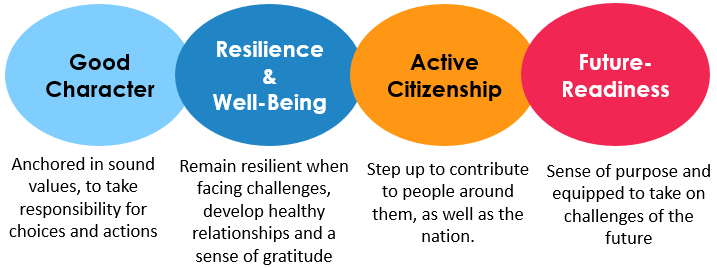
It is also infused in the school's CCE curriculum and programmes through the commemoration of the four core NE events namely Total Defence Day, International Friendship Day, Racial Harmony Day and National Day. Through these events, students gain appreciation of our multi-racial and multi-religious society. Students understand how they can play a part and defend Singapore in their own little ways. This will then strengthen the Singapore spirit.
Total Defence Day (TDD)
Total Defence was introduced in Singapore in 1984 and is commemorated on 15 February every year. It marks the fall of Singapore to the Japanese in 1942. The commemoration of TDD seeks to remind people of the sufferings endured by our forefathers during the Japanese Occupation and reflect on how Total Defence remains our best all-round response to threats and challenges that confront Singapore. They also reflect on the continuing relevance of the 6 Total Defence Pillars and the core message of every Singaporean standing together, with each playing our part to protect Singapore and our shared way of life.
International Friendship Day (IFD)
International Friendship Day falls on the 3rd Friday of Term 2. It provides students the opportunity to explore Singapore’s connection to the region and the world. We commemorate International Friendship Day for our students to reflect on the importance to Singapore of:
an active foreign policy to maintain our international space and good relations with neighbouring countries
openness to the international flow of trade, ideas and talent
cross-cultural skills and a global orientation
mutual respect and understanding to maintain social cohesion in our multicultural society
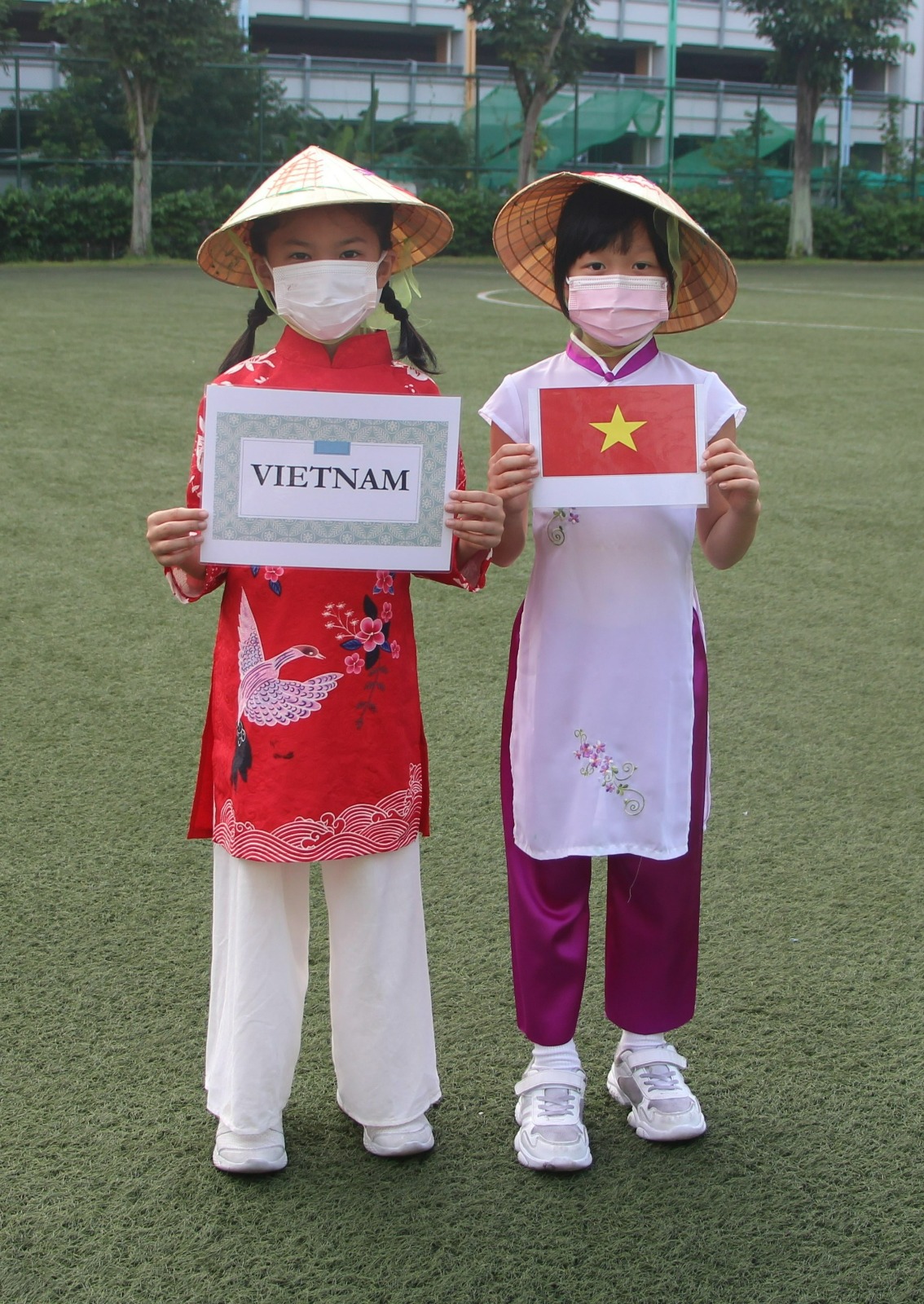 | 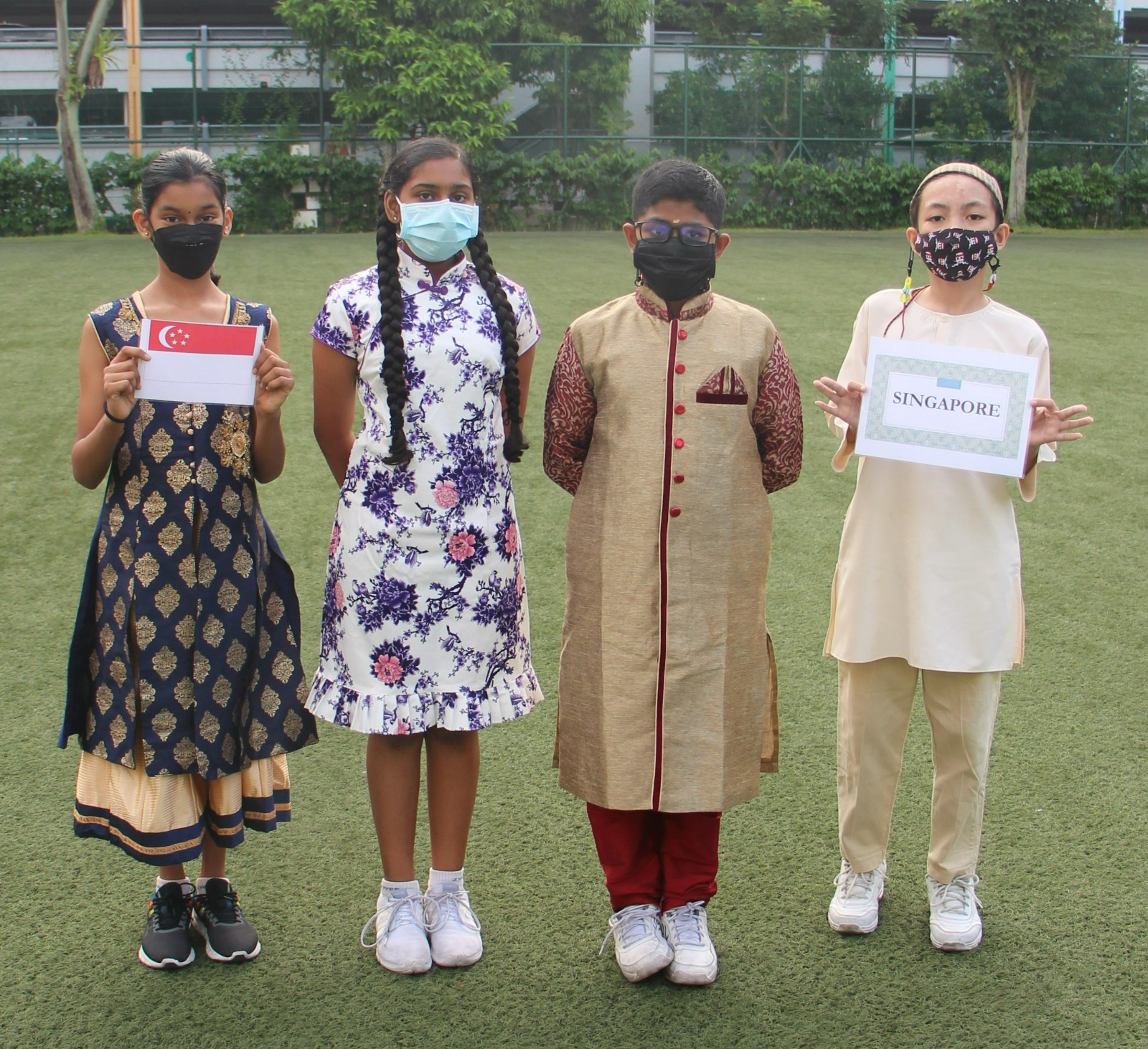 |
Besides, it allows us to understand the importance of our ASEAN Identity.
Racial Harmony Day (RHD)
Racial Harmony Day marks the anniversary of the 1964 racial riots. It is commemorated on 21 July to celebrate Singapore as a harmonious society built on a rich diversity of cultures, requiring collaborative efforts from all to promote social cohesion and harmony.
On this day, we learn that people should be treated equally regardless of their race and religion in Singapore, at any time. Students are also encouraged to be dressed in other culture's traditional clothes such as the Cheongsam, the Baju Kurung and Saree.
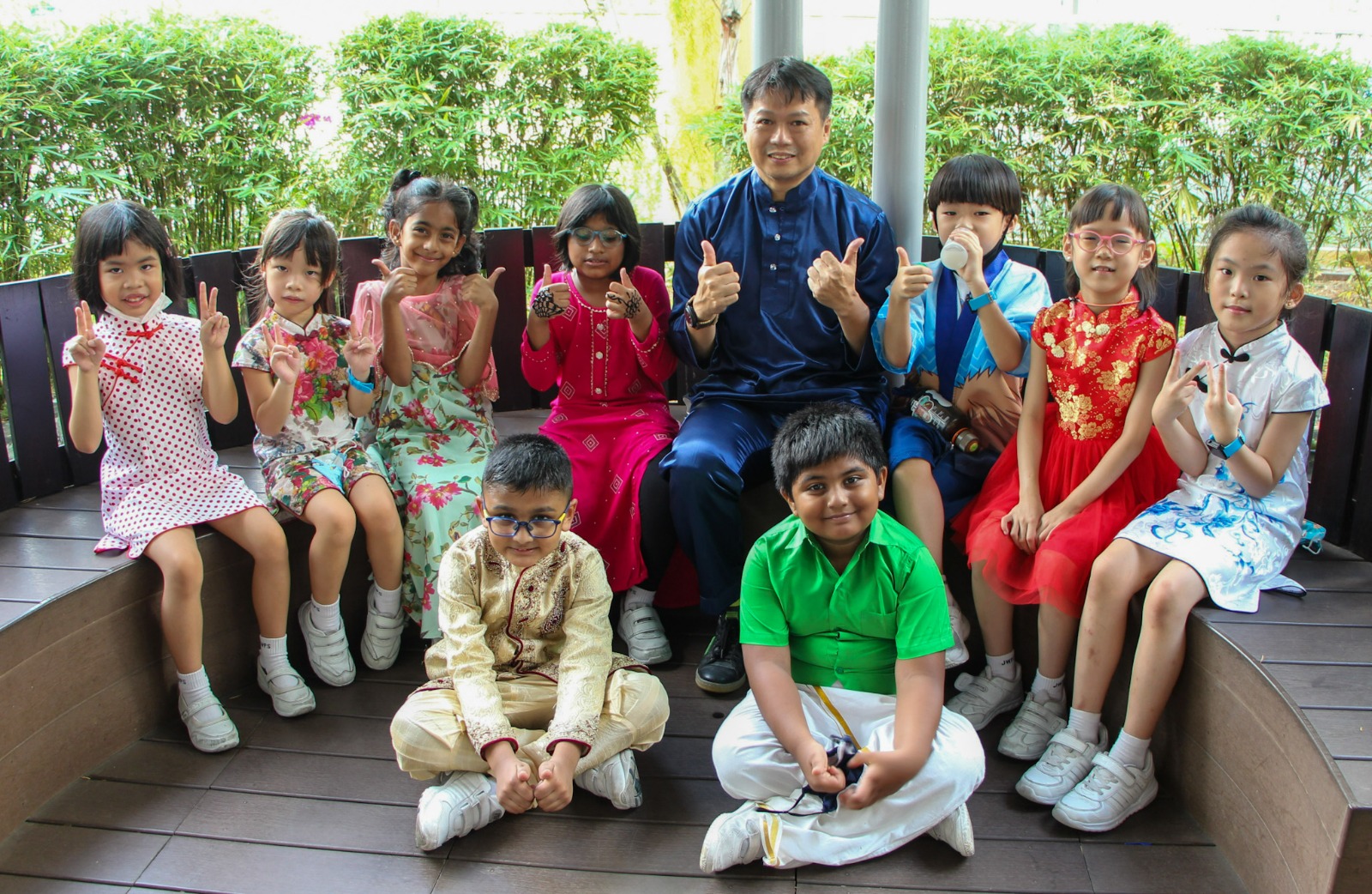 | 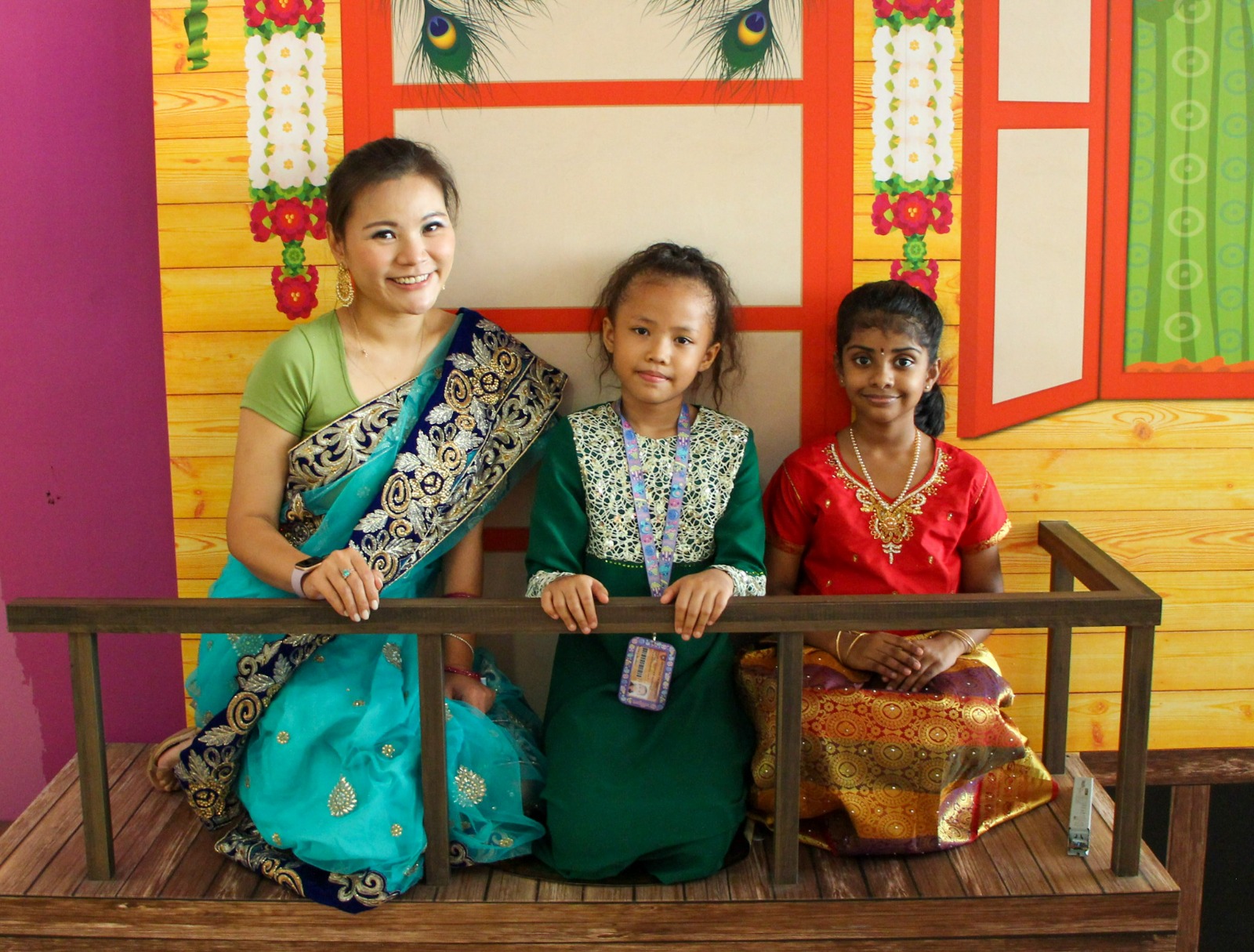 |
National Day
9 August marks our separation from Malaysia in 1965 and our emergence as an independent country in a community of nations. Since 1998, schools have held an observance ceremony for students to have a greater sense of the historical importance and solemnity of National Day. Singaporean celebrates this day with flags lining the buildings, patriotic songs pervades the airwaves, people kitted out in red and white, and of course, the National Day Parade (NDP).
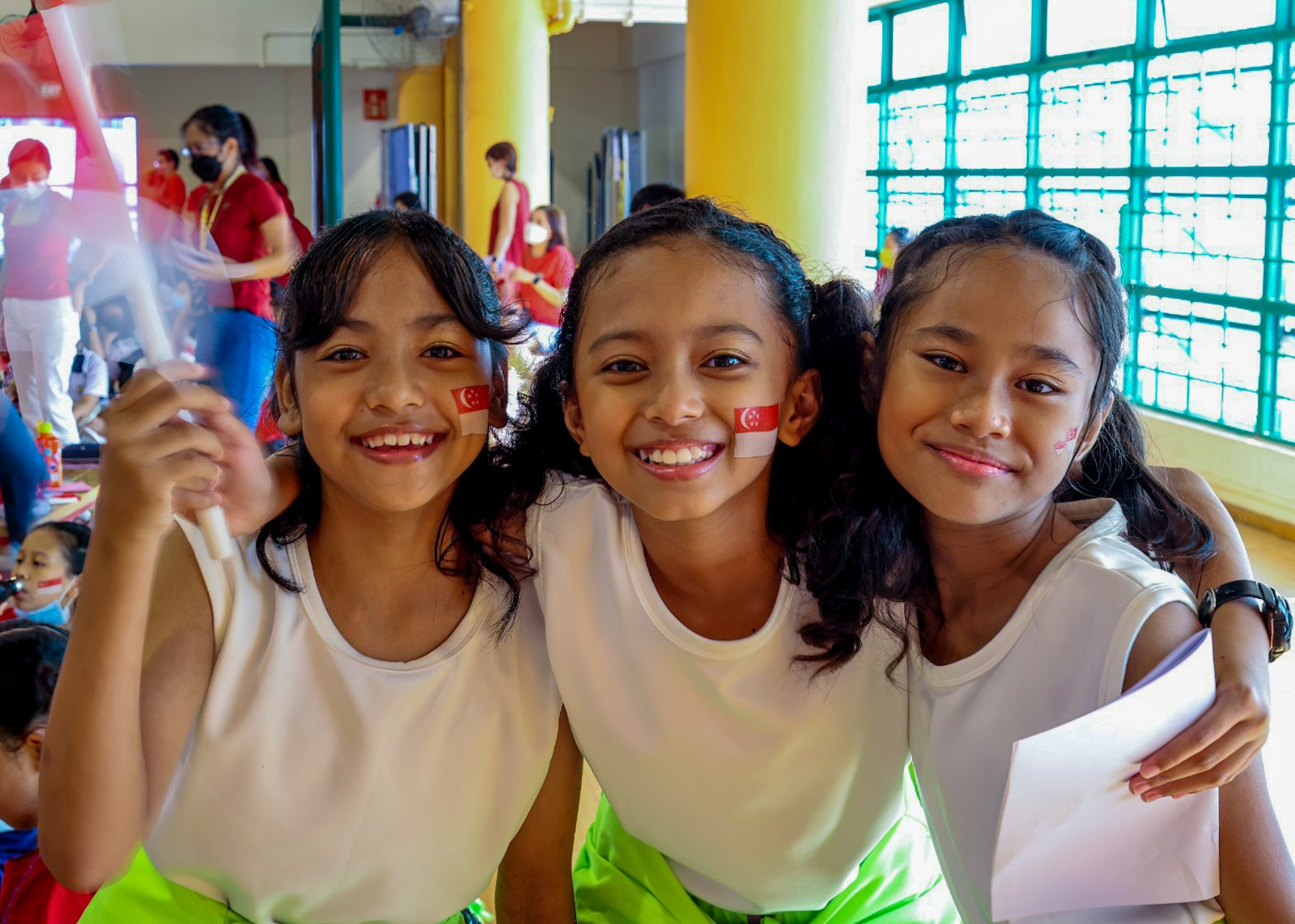 |

